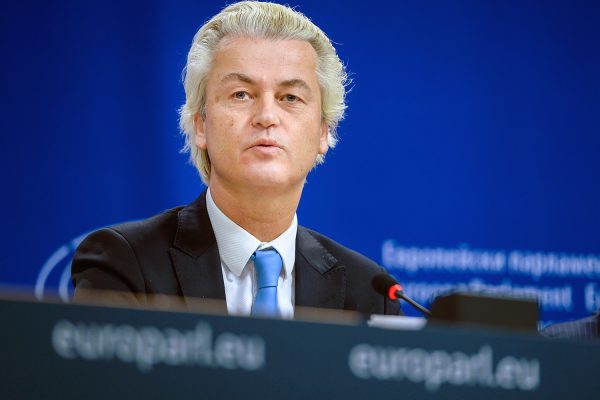
The absence of a serious manifesto did not suggest that the Netherlands’ Geert Wilders had any intention of governing after the election on Wednesday. Now two former elected officials of his Freedom Party have confirmed that he isn’t interested in power — especially the responsibility that comes with it.
Jhim van Bemmel, who sat in parliament from 2010 to 2012, told the broadcaster Human that Wilders pulled out of accord with center-right parties that year for fear of losing popularity.
For two years, Wilders had supported a minority government led by his center-right rival, Mark Rutte. He walked out when the ruling parties proposed more austerity.
Wilders to this day maintains that he quit in order to protect pensioners from cuts. Van Bemmel disputed that assertion as “total nonsense”.
Other Freedom Party dissidents have made similar claims.
“Fewer Moroccans”
Van Bemmel also alleged that Wilders deliberately antagonized other parties with his infamous “fewer Moroccans” statement in 2014.
After placing second in local elections that year, Wilders asked Freedom Party supporters in The Hague if they wanted “more or fewer Moroccans” in the city. The crowd chanted “Fewer! Fewer!”
Van Bemmel said Wilders knew this hate speech would make a coalition impossible. By forcing the mainstream parties to speak out against it, Wilders could maintain that the “establishment” had once again colluded to keep him out of power.
Headscarfs
Something similar happened in Almere, according to René Eekhuis, a former Freedom Party councilor there.
The nationalists placed first in the city’s 2010 election, which meant they were given a mandate to form a coalition government. But talks were held “purely for form,” said Eekhuis. Wilders knew that the other parties could not accept his proposal to ban headscarfs in public, which is why he insisted on it: to get the other parties to rule out a pact.
It worked. The Freedom Party became the largest party in Almere again in 2014. They have remained in opposition.
Curious behavior
Eekhuis and Van Bemmel aren’t the most reliable of sources. The former “borrowed” money from party funds in 2015 and was later convicted of battering his wife. The latter was fined €500 in 2006 for misstating facts in a bankruptcy dispute.
But they aren’t the only ones who have left the Freedom Party disillusioned and some of its current lawmakers corroborated their stories to Human anonymously.
They also help make sense of Wilders’ behavior in this year’s parliamentary election campaign.
He has refused to release a serious program (it is one page with eleven bullet points) and he has so far refused to defend it in election debates.
He tweets and gives interviews to gossip magazines and tabloids, but avoids the serious media, which — taking a cue from Donald Trump — he calls fake news.
Defections
Freedom Party diehards don’t seem bothered. Around 15 percent of the Dutch are voting for Wilders no matter what.
But his refusal to take responsibility vexes conservative voters, who want politicians to do more than talk about problems.
Support for the Freedom Party has come down from a 21-percent high in December to 14-15 percent today. Voters are switching to the Christian Democrats on the right, who agree that the Netherlands ought to defend its heritage, and the Socialists on the far left, who share many of Wilders’ social policies.
